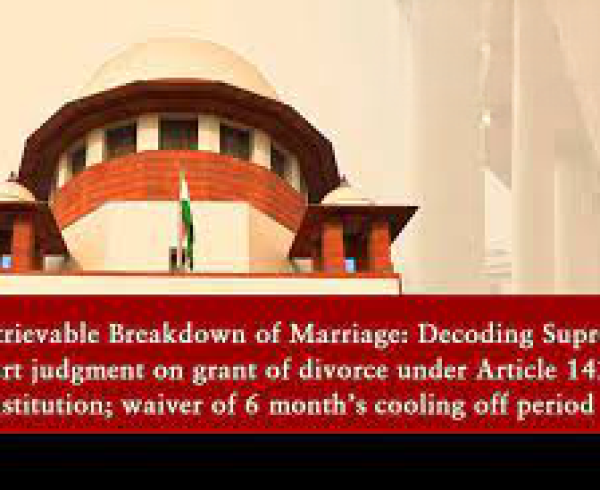
In India, a false FIR (First Information Report) or a criminal case can be quashed by the trial court or the High Court depending on stage of the case if it is determined that no case is made out against the accused. The power to quash an FIR or criminal charges is derived from the inherent jurisdiction of the courts and is primarily guided by provisions of the Criminal Procedure Code (CrPC).
When it comes to quashing a false FIR (First Information Report) or criminal case, it is important to note that each case is unique, and the outcome depends on the specific facts and circumstances involved. However, there are certain legal provisions and landmark judgments that provide guidance on quashing proceedings. Here’s an overview:
- Section 482 of the Code of Criminal Procedure (CrPC): This section grants inherent powers to the High Court to quash criminal proceedings if it deems it necessary to prevent abuse of the process of the court or to secure the ends of justice. The court may exercise these powers at any stage of the proceedings.
- Grounds for Quashing: The High courts may quash an FIR or criminal case if there are no prima facie (on the face of it) grounds to establish a criminal offense, if the allegations are vague or absurd and not specific, or if the case is filed with mala fide (ill-intent) intentions or for personal vendetta or to create unjustified pressure. The court may also quash cases if there is a possibility of the dispute being resolved amicably or if it falls within the purview of a compoundable offence.
- Procedure: To quash an FIR or criminal case, the accused can file a petition before the trial court or the High Court, depending on the stage of the case. The court will examine the allegations, evidence, and arguments put forth by both parties before deciding whether to quash the case. The court’s decision will be based on the facts and circumstances of each case.
- Landmark Judgments: The Supreme Court has issued several landmark judgments that provide guidance on quashing FIRs or criminal cases. Notable judgments include:
- R. P. Kapur v. State of Punjab (1960): The Supreme Court held that the High Court can quash criminal proceedings if it concludes that allowing the proceedings to continue would be an abuse of the process of the court or that the allegations made are manifestly false or frivolous.
- State of Haryana v. Bhajan Lal (1992): The Supreme Court outlined several categories where the High Court can exercise its inherent powers under Section 482 CrPC, including cases where the allegations are manifestly false, the case is maliciously instituted to settle personal scores, or there is a lack of prima facie evidence.
- Madhavrao Jiwajirao Scindia v. Sambhajirao Chandrojirao Angre (1988): The Supreme Court held that if the allegations made in the FIR and the material produced do not disclose any offense, the court can quash the proceedings.
- Gian Singh v. State of Punjab (2012): The Supreme Court clarified that the court should be cautious while exercising its inherent powers to quash criminal proceedings, and such powers should be invoked sparingly in exceptional cases where there is no possibility of conviction.
It’s important to note that the decision to quash an FIR or criminal case rests with the respective trial court or High Court, based on the facts and circumstances presented before them. These landmark judgments provide guidance, but the courts have the discretion to evaluate each case on its merits.
It is important to note that each case is unique, and the specific provisions and judgments applicable may vary based on the facts and circumstances involved. If you believe that a false FIR or criminal case has been filed against you in Indore, it is advisable to consult with a qualified criminal defense lawyer in Indore, MP who can analyze your specific facts and situation, review the available evidence, and guide you on the appropriate legal recourse for quashing of false FIR or false criminal case because expert legal advise is crucial for understanding and navigating the legal process effectively.
Article by: Raghvendra Singh Raghuvanshi & Nidhi Vaidya, Advocates-High Court of MP, Indore.






Leave a Comment